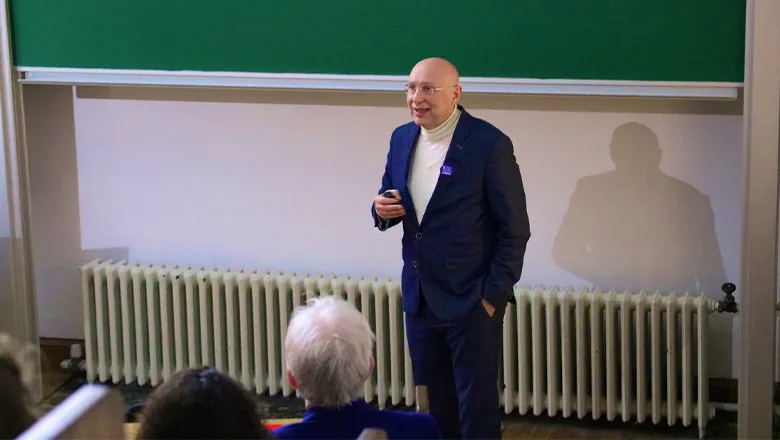24 February 2020
Nobel laureate Professor Stefan W. Hell delivers Wheatstone Lecture 2020
The Department of Physics was delighted to welcome Nobel Laureate Professor Stefan W. Hell (Max Planck Institute for Biophysical Chemistry and Max Planck Institute for Medical Research) as guest lecturer for its annual Wheatstone Lecture.

Entitled “MINFLUX Nanoscopy: Superresolution Post Nobel”, this year’s lecture explored stimulated emission depletion microscopy (STED), an optical imaging technique developed by Professor Hell which led to a joint awarding of the Nobel Prize for Chemistry in 2014. In addition to photo-activated localization microscopy (PALM) and stochastic optical reconstruction microscopy (STORM) – two other techniques developed in the 2000s by Eric Betzig and William E. Moerner – STED gained recognition "for the development of super-resolved fluorescence microscopy" in its ability to surpass the maximum achievable resolution of optical imaging techniques of the previous century.
Professor Hell’s also discussed his group’s new technique “MINFLUX”, a new optical imaging techniques that can beat the resolution of STED by a factor of 10.
King’s Department of Physics launched the Wheatstone Lectures in 2013 as a scientific public lecture series.
Sir Charles Wheatstone FRS (1802-75) was Professor of Experimental Philosophy at King's, and the first Professor in the Department from 1834 until his death in 1875. Polymath and self-taught, Wheatstone was a prolific inventor whose legacy includes the symphonium, the stereoscope, the Wheatstone Bridge and the development of the electric telegraph which revolutionised communications in the nineteenth century.
